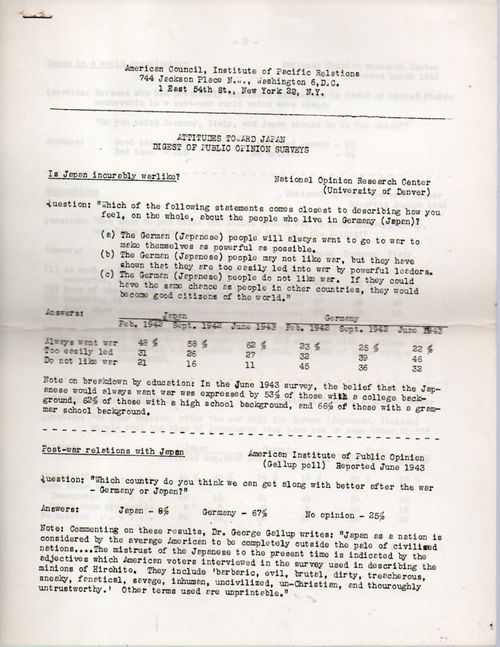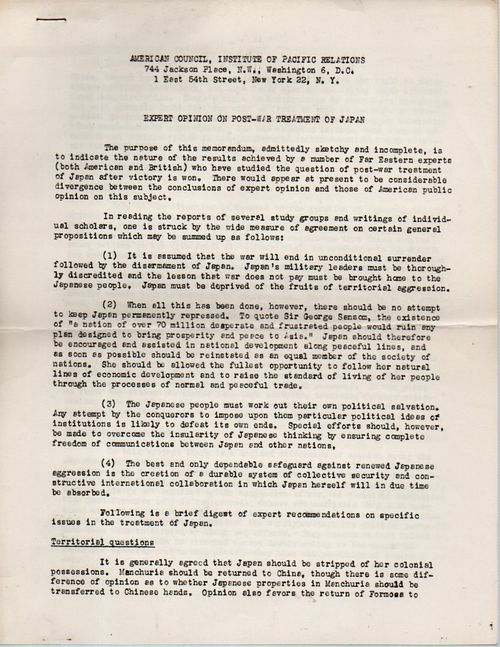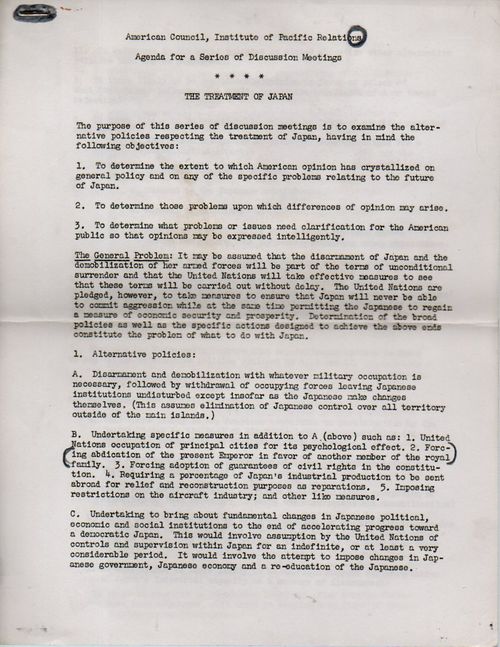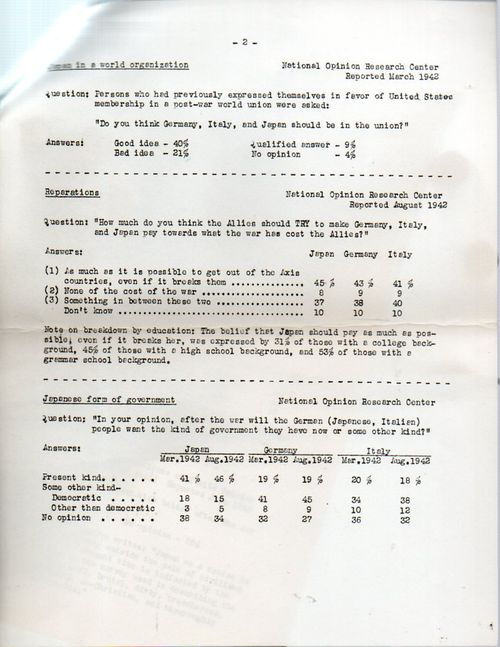Three opinion collection documents, printed
- 1) Attitudes Toward Japan, Digest of Public Opinion Surveys. 11"x 8.5", offset printed from typed originals. 2 lvs. Stapled. 1944.
- 2) Expert Opinion on Post-War Treatment of Japan. 11"x 8.5", offset printed from typed originals. 4 lvs. Stapled. 1944.
- 3) The Treatment of Japan. 11"x 8.5", offset printed from typed originals. 4 lvs. Stapled. 1944.
The three (all quite scarce): SOLD
I uncovered a few interesting documents this morning from The American Council, Institute of Pacific Relations (in 1944 at the address 744 Jackson Place, N.W., D.C.) relating to collecting opinions on Japan and the Japanese, right at the height of the war. And this is what the American Council was doing--prep work to assess the extent of public opinion on the treatment of Japan post-war, which entailed reviewing existing polling data (from Gallup) was well as conducting their own original research.The "first" issue (so far as I can determine) was perhaps the most aggressive:
Is Japan incurably warlike?
The question was asked of an undefined group over three periods of time (February 1942 to June 1943) for both Japan and Germany, the statements the respondents having to choose from being: "always want war", "too easily led" and "do not like war" at three different times, from February 1942 to June 1943. From Feb '42 to June '43, people's opinions that the Japanese "always want war" went up from 48% to 62%, while for the same time the same question regarding the Germans stayed about the same, 22%. The Gallup Poll for June 1943 reported that for 75% of the respondents only 8% of the folks thought that "we can get along" with the Japanese, while 67% favored our chances with the Germans.
Get along with them or not, or feeling that they are war-like or not, had little to do with the opinions of people (reported by the National Opinion research Center, August 1942) who thought that reparations should be paid, and paid hard, by the Axis powers across the board, "as much as it is possible to get out of the Axis countries, even if it breaks them".
The following two papers came a little later, closer to the realization that victory was coming, that the war would be over, that victory would be taken--probably at the end of 1944 or the beginning of 1945, when position statements were more circumspect than the earlier public opinions. "Expert Opinion on Post-War Treatment of Japan" was more understanding when speaking to the post-war existence of Japan, stating in a number of different ways that "there should be no attempt to keep Japan permanently repressed" and "the Japanese people must work out their own political salvation". Also that there would be no "continuing burden of reparations payments...as done with Germany after the last war".
The overall feeling of this and the following document ("The Treatment of Japan") can be found in the section "Teaching Japan a Lesson": "United Nations effort should be directed toward demonstrating to the people of Japan the advantages of making peace rather than the penalties of losing a war". The issue regarding the Emperor and whether or not he should or could stay--an issue that would stay with high command right through the second week of August 1945.







Comments